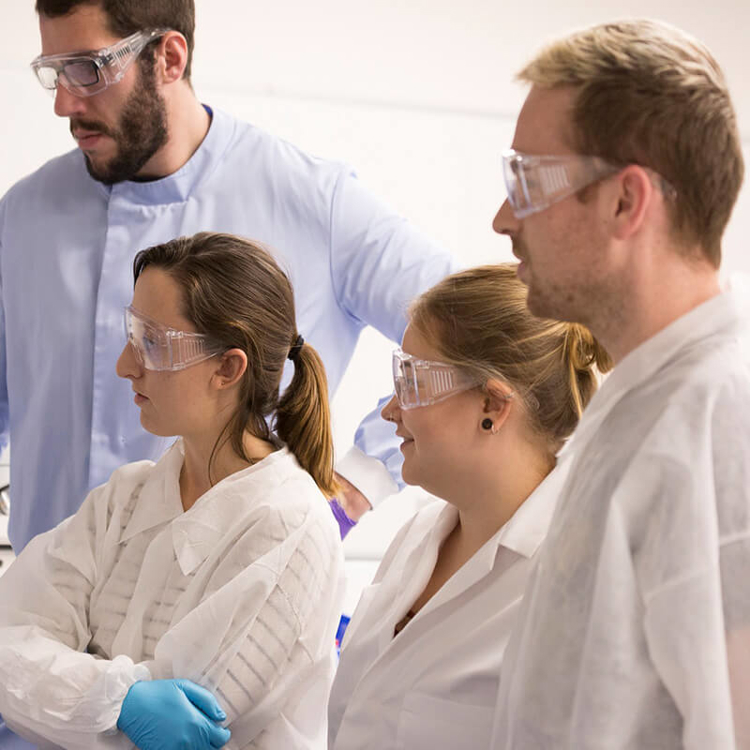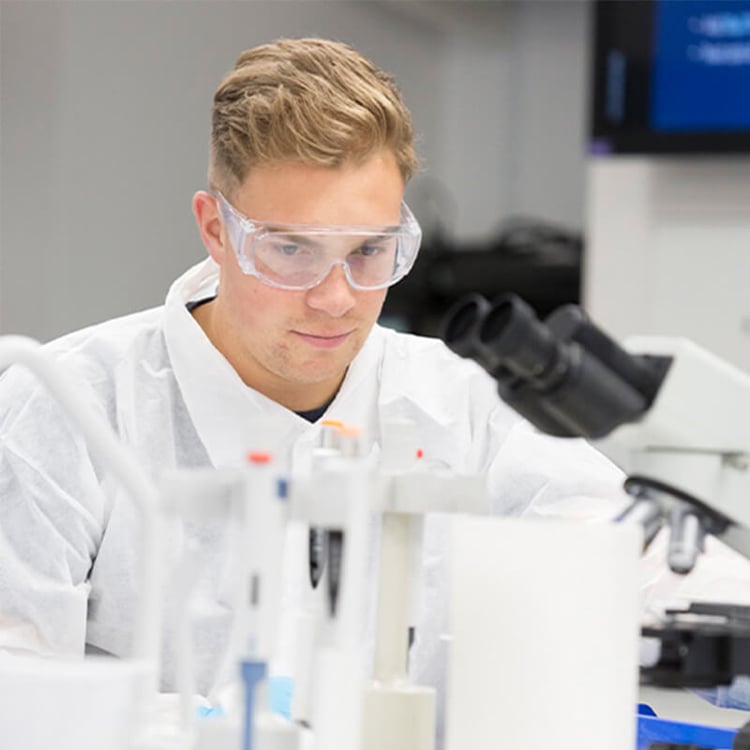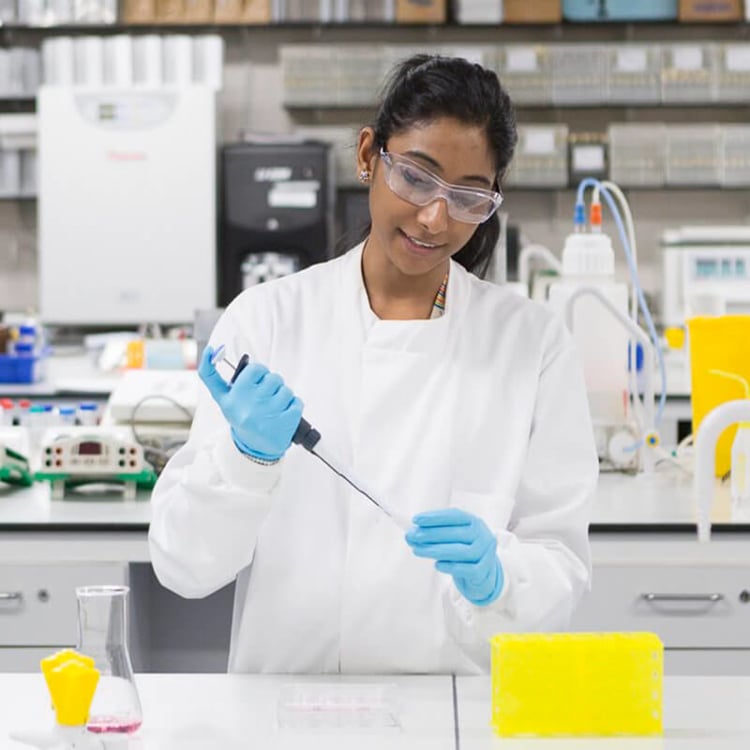/ Undergraduate /
Start date:
September 2025
Entry tariff:
112–128 UCAS points (or equivalent)
UCAS code:
B160
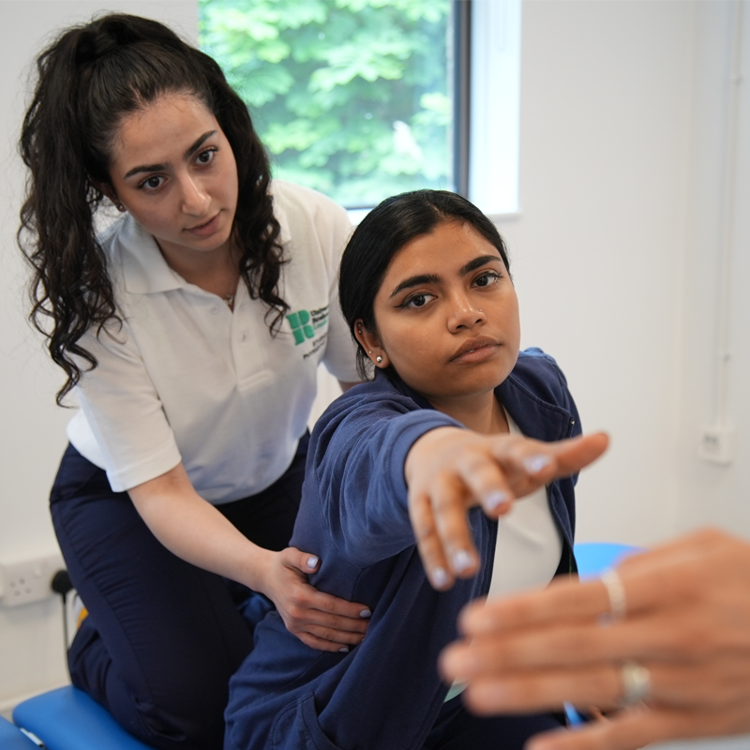
On-Campus Open Day
Saturday 12 July 2025
Prepare for a rewarding career working as a confident, autonomous Physiotherapy practitioner with strong reasoning, communication and teamwork skills. You'll go on to work in varied settings across the NHS (community, hospital and primary care) and private practice.
Did you know?
Learning will take place in our state-of-the-art teaching facilities including the Mary Seacole Health Innovation centre equipped with advanced technology and equipment.
Module details: In this module, you will explore key concepts and foundations of human physiology and anatomy. You will gain an understanding of the structure and function of the human body by studying anatomical features and the physiology of body systems. The module will also examine how these systems interact to maintain homeostasis and support health across the lifespan. Designed to support interprofessional learning, it provides essential knowledge for those entering health and social care professions.
Module details: In this module, you will learn from, about, and with peers from other professional programmes, supporting interprofessional collaboration. You will develop essential academic and study skills while exploring what it means to be a professional. The module will examine key ethical, legal, and regulatory frameworks relevant to each student’s chosen discipline. Through shared learning and reflection, you will begin to build a strong professional identity within the wider context of health and social care practice.
Module details: In this module, you will apply knowledge gained from previous modules to assessment across various areas of practice and throughout the lifespan. You will continue to develop practical skills while deepening your understanding of transferable skills in professional settings. The module also explores inclusive approaches to assessing service users, encouraging consideration of diverse needs and contexts. Through this, you will enhance your ability to deliver person-centred, equitable care across a range of health and social care environments.
Module details: In this module, you will explore approaches to assessment across different specialties and populations, with consideration of a global perspective. You will continue to develop your understanding of equality, diversity, and inclusion in practice, including the needs of individuals with varying physical and mental disabilities. The module also aims to build awareness of health inequalities and their impact on service delivery. This learning will support you in providing inclusive, person-centred care across diverse health and social care settings.
These modules are those we currently offer and may be subject to change.
Module details: In this module, you will develop a detailed understanding of exercise physiology and the principles of exercise prescription. You will explore the science of human performance and examine how physical activity relates to the structure and function of the human body. The module also supports the development of assessment and clinical reasoning skills, enabling you to apply your knowledge within the context of safe and effective exercise prescription. This learning underpins evidence-based practice in health and social care.
Module details: In this module, you will build an understanding of research skills with a strong emphasis on evidence-based practice to support transformation in health and social care. Through interprofessional learning, you will explore the value of collaboration in healthcare research. The module also introduces digital healthcare innovations and examines the role of artificial intelligence in supporting research. This foundation will equip you to critically engage with research and apply evidence to improve practice across diverse care settings.
Module details: In this module, you will explore the role of physiotherapists in population health, with a focus on the importance of professional collaboration in health promotion. You will examine the wider determinants of health and the influence of role modelling attitudes and behaviours. The module also supports the development of skills needed to empower individuals to make sustainable behavioural changes, preparing you to contribute effectively to preventative health strategies in a range of professional contexts.
Module details: In this module, you will focus on evidence-based interventions, rehabilitation, and the management of commonly encountered conditions across the lifespan. You will explore the principles of shared decision-making and work collaboratively with other allied health professionals to support person-centred care. The module also covers the use of protocols and intervention planning across different areas and settings, preparing you to contribute effectively throughout the care pathway in diverse health and social care environments.
These modules are those we currently offer and may be subject to change.
Module details: In this module, you will enhance your knowledge across diverse and developing contexts while strengthening your ability to think innovatively. You will explore the evolution of your profession within the dynamic health and social care landscape. Contemporary themes such as the integration of artificial intelligence and the importance of environmental sustainability will be examined. This module encourages forward-thinking approaches and prepares you to adapt to emerging challenges and opportunities in professional practice.
Module details: In this module, you will enhance your understanding across all pillars of practice, with a particular focus on leadership in healthcare. You will develop key leadership skills and explore approaches to innovative practice. The module also examines educational principles to support teaching, learning, and assessment in practice-based settings. You will learn how to effectively educate and support colleagues, students, and service users, preparing you to take on leadership and educational roles within health and social care environments.
Module details: In this module, you will focus on preparation for employment as a qualified allied healthcare professional, with an emphasis on life-long learning and continuing professional development. You will develop self-awareness and explore key concepts such as self-care, stress management, compassion, and resilience. The module aims to equip you with the skills to maintain workforce sustainability and promote personal wellbeing in the workplace, ensuring you are prepared for the demands and challenges of a career in healthcare.
Module details: In this module, you will have the opportunity to develop a detailed understanding of a specialist research topic. You will undertake a research project using rigorous scientific methods of investigation and analysis. This project allows you to demonstrate your advanced practical and investigative skills, along with your written and oral presentation abilities. Through this process, you will refine your research skills and showcase your capability to conduct independent, high-quality research in your chosen field.
These modules are those we currently offer and may be subject to change.
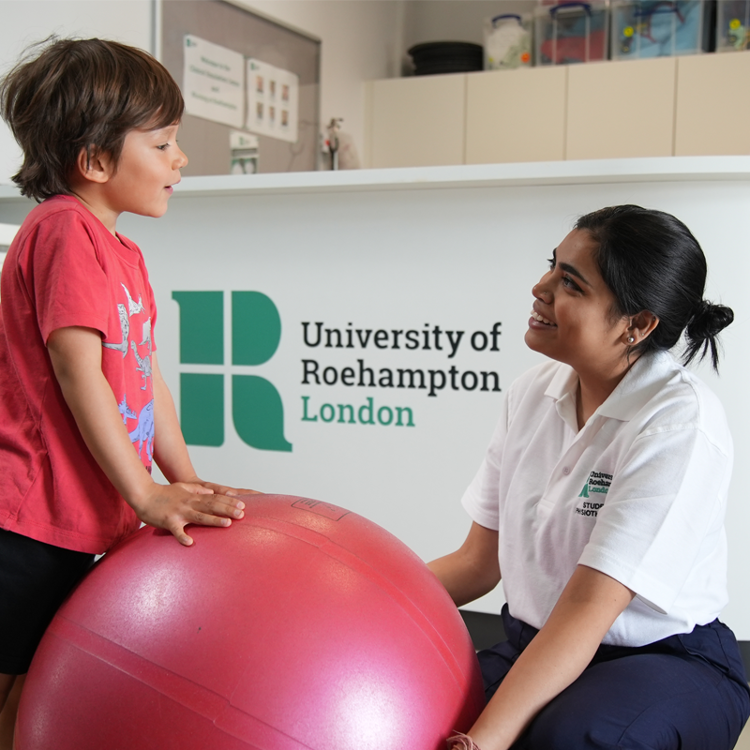
Skills
Our BSc Physiotherapy (pre-registration) is a 3-year course which offers an entry route into the Physiotherapy profession.
The degree will support you to become a self-reflective lifelong learner, committed to inclusive practice, continuing professional development as well as personal and professional growth. You will be prepared to meet the requirements of Physiotherapy’s professional statutory regulatory bodies: The Health and Care Professions Council and The Chartered Society of Physiotherapy.
Key themes will be scaffolded throughout your studies:
- Life-long learning
- Person-centred care
- Communication
- Self-awareness
- Equality, diversity and inclusion
- Evidence-based practice
- Interprofessional learning
- Leadership
Learning
Learn in a stimulating and active environment.
Be engaged and motivated to become a confident, autonomous practitioner with effective communication and teamwork skills for practice in varied health and social care settings.
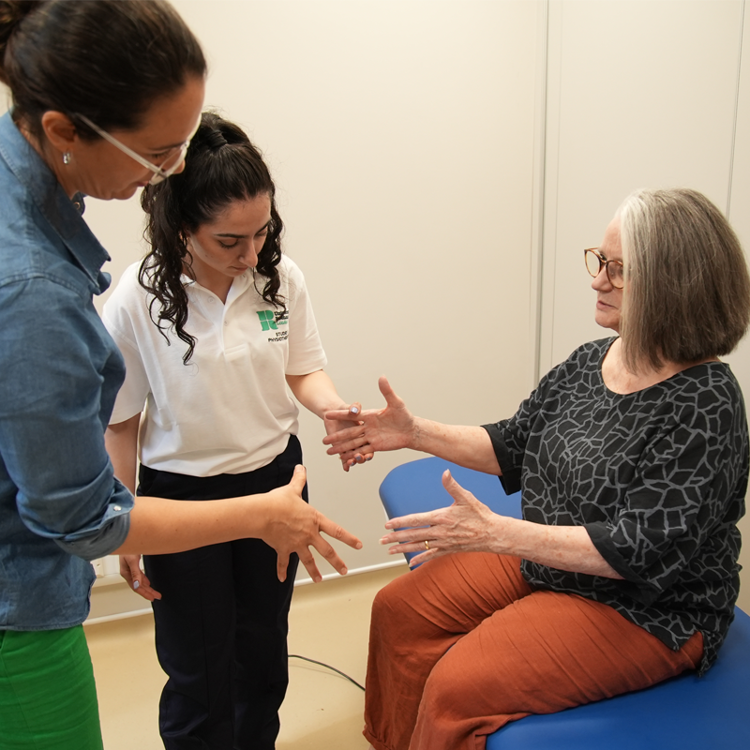
Our programme offers a blended learning approach which includes online learning and in-person teaching. The course is modular - your knowledge and skills on topics will be built upon as you progress through the programme and develop proficiency.
You will undertake placements in a wide range of settings across different clinical areas, and in education, research and leadership to reflect current health and social care provision.
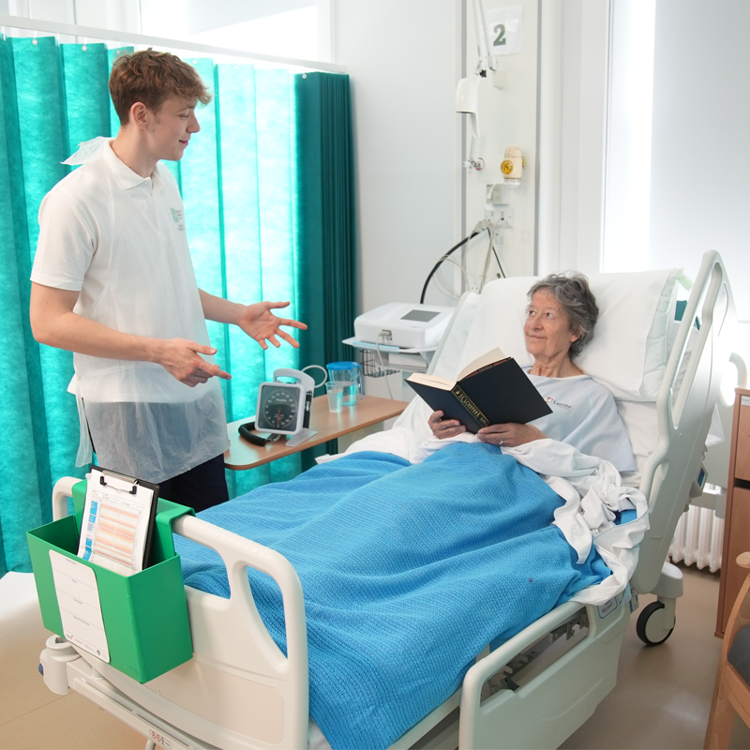
Assessment
A variety of authentic and meaningful assessments will be used throughout the programme.
These include the following:
- practical assessments
- case- based assessments
- oral presentations
- written blogs
- self-reflections
- in class tests
Careers
Shape the future of health and social care.
The University-led modules and practice-based learning on the course will help build a wide base of knowledge and develop key transferable skills which will prepare you for a career in physiotherapy upon graduation.

Diverse employment opportunities include the following:
- General practice
- Community Services
- Professional sport
- Private practice
- National Health Service (NHS)
- The third sector
- Education
- Research
- Leadership
The transferable skills developed through the course will also support graduates for a diverse range of careers outside of physiotherapy.
Our Careers team is on hand to help from the start of your studies until after you graduate. Under their guidance you will benefit from a wide range of support, including:
- CV building
- Interview preparation
- Mentoring
- Industry connections
- Work experience
- Volunteering opportunities
- Job fairs
- Introductions to future employers
Open days
Get a real taste of our campus, community and what it’s like to study at Roehampton
Applying
Full-time UK undergraduate students apply through UCAS.
Course subject to curriculum review and validation.
Entry tariff
112–128 UCAS points (or equivalent)
Looking to work out your UCAS points or find out about our entry requirements? Find out more.
When we consider applications to study with us, we form a complete view of your achievements to date, and future potential, and can offer flexibility in entry requirements. Find out more about our Contextual Offer scheme.
Specific entry requirements
Entry subject should include a Science or Life Science subject e.g. psychology, physical education.
All students will complete a values-based interview. Evidence of interest and work experience in a relevant field.
Satisfactory enhanced DBS check (adults and children).
If English is not your first language, you will be required to meet the HCPC requirements (Standards of Proficiency for Physiotherapists, 2023): that students are able to communicate in English to level 7 of the International English Language Testing System, with no element below 6.5.
Students must undergo health screening to assess fitness to begin the course. Students must also complete an approved programme of immunisation, as recommended by the Department of Health.
Students must declare any criminal convictions, cautions, and bindings over when requested during the application and interview process.
.
General entry requirements
September 2025 entry tuition fees
UK (home) tuition fees
Undergraduate degree: £9,535
We offer a wide range of scholarships and bursaries. See our financial support pages for UK students.
We also provide other ways to support the cost of living, including free buses and on-campus car parking, hardship support and some of the most affordable student accommodation and catering in London. Find out more about how we can support you.
International undergraduate students apply through our direct application system.
Course subject to curriculum review and validation.
Entry tariff
112–128 UCAS points (or equivalent)
Looking to work out your UCAS points or find out about our entry requirements? Find out more.
When we consider applications to study with us, we form a complete view of your achievements to date, and future potential, and can offer flexibility in entry requirements. Find out more about our Contextual Offer scheme.
Specific entry requirements
Entry subject should include a Science or Life Science subject e.g. psychology, physical education.
All students will complete a values-based interview. Evidence of interest and work experience in a relevant field.
Satisfactory enhanced DBS check (adults and children).
If English is not your first language, you will be required to meet the HCPC requirements (Standards of Proficiency for Physiotherapists, 2023): that students are able to communicate in English to level 7 of the International English Language Testing System, with no element below 6.5.
Students must undergo health screening to assess fitness to begin the course. Students must also complete an approved programme of immunisation, as recommended by the Department of Health.
Students must declare any criminal convictions, cautions, and bindings over when requested during the application and interview process.
General entry requirements
September 2025 entry tuition fees
EU and international tuition fees
Undergraduate degree: £19,500
We offer a wide range of scholarships and bursaries. See our financial support pages for international students.
We also provide other ways to support the cost of living, including free buses and on-campus car parking, hardship support and some of the most affordable student accommodation and catering in London. Find out more about how we can support you.



